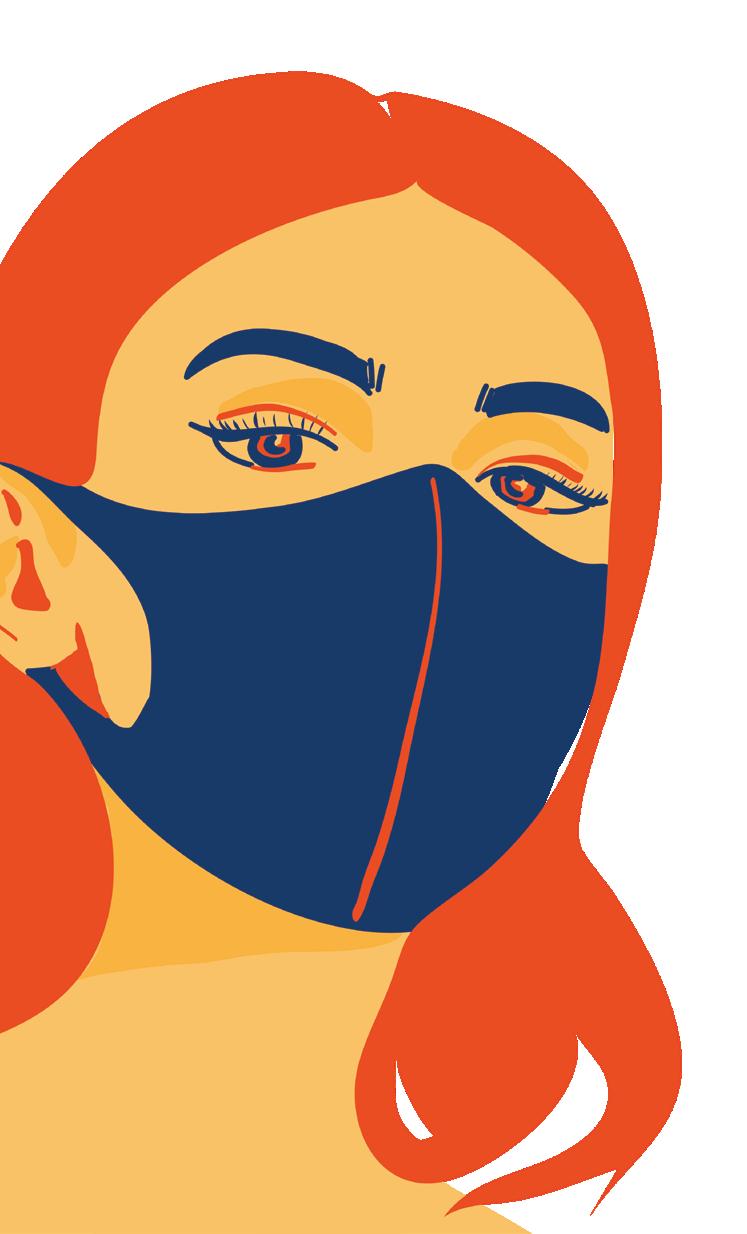
2 minute read
Face Masks Causing Acne Problems?
by Dr. Rebecca Butler (Lantana Resident), Board Certified in Pediatrics by the American Board of Pediatrics & Nnenna Agim, M.D., pediatric dermatologist at Children’s Health (for the following tips)
940.455.7200 LantanaPediatrics.com
Advertisement
74 McMakin Rd., Ste. 100 Bartonville, TX 76226

Mon, Tues, Thurs: 7:30am-6pm Wed: 7:30am-1pm | Fri: 7:30am-5pm Sat: 9am-12pm
FLU SHOTS AVAILABLE
Wearing a mask is vital to prevent the spread of COVID-19. However, this practice may be causing people more acne troubles. I have seen many teens and young adults lately with complaints about worsening or new acne and other skin irritations. These mask-related acne problems, known as “maskne” are becoming more common the longer we wear facial coverings.
How face masks cause acne flares:
Wearing a mask physically blocks pores, and that can trigger the first step in the pathway that causes acne. There are millions of microorganisms on the skin, including bacteria. Some bacteria are good, helping care for your skin. Others are detrimental to skin and can cause breakouts. When your face is covered with a mask, you are changing the usual environment of your skin to a more humid environment, which leads to the “sticky” situation that causes breakouts.
How to prevent maskne:
We cannot control all the factors related to maskne. We still need to wear a mask and wear it correctly — over our nose and mouth. When you are at home without a mask, here are some important tips for caring for your skin.
Wash your face every day. Use a gentle cleanser on the skin each day. Avoid products that are too harsh, as this may disrupt the balance of bacteria on the face and damage the skin. (Remember we need to “good” bacteria to survive for our skin to thrive!)
Avoid heavy face products. When using moisturizers, make sure to pick the lightest moisturizer possible. Skip makeup or use an oil-free product if makeup cannot be avoided. The same goes for sunscreen.
Take care of your mask. Masks should be washed regularly. If the mask is 100% cotton, it will help the skin breathe. After wearing a cloth face mask, it’s a good idea to wash it in hot water using a fragrancefree, hypoallergenic detergent.
Clean your face at the end of the day. You can use over-the-counter products that contain keratolytics, which are medications that unstick the cells and unblock pores. Azelaic acid may also help, with the added benefit of reducing skin discoloration.
Talk to your pediatrician or a dermatologist if severe acne doesn’t go away. If your maskne has gotten severe and painful despite regular washing, there are prescription-strength topical and oral treatments that can help resolve the problem.











